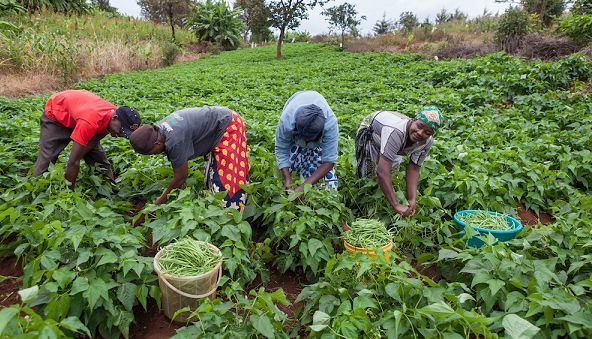
50% of Africans lack access to sufficient food — Report
Six hundred and fifty million people in Africa lack economic or physical access to sufficient food, the 2023 Africa Agriculture Status Report has revealed.
This figure represents 50 per cent of the continent’s population.
The report, which was launched at the Africa Food Systems Forum (AFSF) 2023 in Dar-es-Salam, Tanzania, has therefore called for a concerted response from governments, the private sector, communities and individuals alike in empowering Africa’s food systems for the future.
It added that if the goals of the African Continental Free Trade Area (AfCFTA) were fully realised, 50 million people could escape extreme poverty by 2035.
The AFSF, which has evolved from the Africa Green Revolution Forum (AGRF), is the premier forum for African agriculture and food systems.
The 2023 conference in Dar-es-Salam, held from September 5 to 8, brought together stakeholders to take practical action and share lessons that would move African food systems forward.
The four-day hybrid event was attended in person and virtually by over 4,000 delegates from across the world.
The President of the Alliance for a Green Revolution in Africa (AGRA), Dr Agnes Kalibata, said the report strove to show that innovative finance was not just a buzzword but an essential tool for Africa’s journey towards sustainable, resilient and inclusive food systems.
“As the continent faces the dual challenges of rapid population growth and climate change, finding new financing mechanisms will be paramount in shaping a prosperous and secure food future for all its citizens,” she said.
Report
Titled: “Empowering Africa’s Food Systems”, the Africa Agriculture Status Report (AASR23) offers an in-depth exploration of the vulnerabilities, challenges and transformative potential of the continent’s food systems.
It delves into a holistic understanding of the intricacies of African food systems from socio-economic vulnerabilities to the pivotal role of knowledge and technology, while highlighting the urgent need for innovative financing.
The new study underscores the need to address the challenges affecting African food systems considering the imminent threat posed by climate change, and the potential consequences of inaction.
Other revelations contained in the report indicate that out of the 50 indicators outlined in the Food Systems Countdown Initiative (FSCI) framework, sub-saharan African countries are performing worse than the global average in a total of 32 indicators mostly related to diets, nutrition and health.
On the other hand, sub-saharan African countries are performing better than the global average in the remaining 18 indicators, including those on food systems' greenhouse gas (GHG) emissions and biosphere integrity.
The above is accentuated by the fact that 50 per cent of the 650 million continent’s population lacks economic or physical access to sufficient food to meet their minimum needs every day (BCG, 2021).
Intra-African trade
“While African governments are committed to tripling intra-African trade in agricultural commodities and services by 2025, as part of the 2014 Malabo Declaration, the aspiration is far-fetched as this kind of trade continues to dwindle from its peak in 2013 to less than 15 per cent in 2022.
“However, if fully implemented, the AfCFTA could raise household income by nine per cent by 2035 while lifting 50 million people out of extreme poverty.
Africa could see foreign direct investment increase by between 111per cent and 159 per cent under the AfCFTA,” a press release from the launch stated.
Overall, despite progress in food production, processing and distribution, the report noted that significant challenges and failures persisted leading to an alarmingly poor state of food and nutrition security across the continent.
The report unveils a multifaceted web of challenges that stretch from production to consumption.
